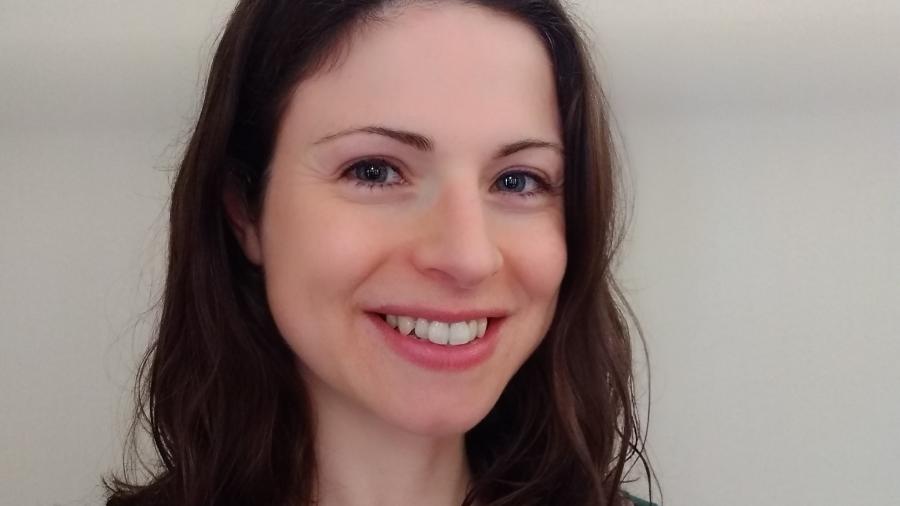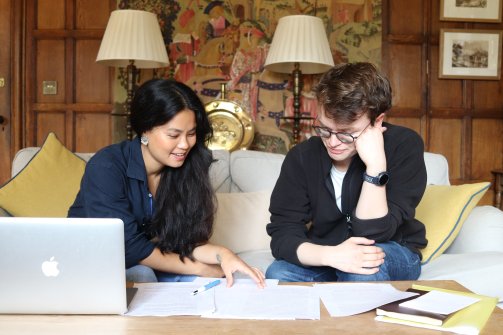New Press Fellows arrive at Wolfson


This week, Librarian Laura Jeffrey is inviting the Wolfson community to take part in an event that could lead to long-lasting improvements in the way readers discover knowledge in the College library.

The event – Where Would You Look for Books About Women? – will urge fellows, students, and members to think about how knowledge is organised in libraries and presented to the academic community. It will ask questions such as: 'where should books on women in the Middle Ages be located: with books on the Middle Ages or with books about women?’ There are many tough questions, but getting them right is essential to correctly describing the collection – and making books easier to find.
The event is part of a long-term project to reclassify all the books held in the College’s Lee Library – to face up to the classification challenges brought about by an ever-changing intellectual landscape. The intention is ultimately to better enable readers to discover the knowledge within our collection.
Here, Laura writes about the challenges and opportunities of tackling such a huge project – and the benefits to anyone visiting the library.
Imagine a library without a classification scheme. It would be a jumble of books making it impossible to find a specific item or browse collections on a similar theme.
But how do we correctly classify books? Some books clearly fall into a single category, but others are interdisciplinary and so the process of classification requires us to prioritise one subject over another. We have to make a judgement at the point of acquiring a book whilst recognising that, over time, societal norms will change.
As a small independent library, we can exercise our judgement to decide whether or not an individual book should remain alongside others on that topic. In short, whether we agree with the classification scheme that was applied to the book when we acquired it or whether we should recontextualise it in light of changes in society and academia.
This week’s event comes at the start of a large-scale project to tackle many of the big classification questions floating around today: a project to reclassify the Wolfson Library collection. At one level, this is a technical exercise: to eliminate a running number sequence which means that books are essentially in the order in which they are acquired, within subject areas. At the moment, books by the same author on the same subject are not shelved together. By changing this part of our scheme we can make the shelves easier to browse.
But in undertaking that epic challenge – we’re talking years! – it gives us the opportunity to reconsider whether the book should be at that classmark at all. The classmark is the number of the spine of the book that groups books on similar topics together.
The classification scheme used in libraries today is over 150 years-old. We use the Dewey Decimal Scheme, developed in 1870s by Melville Dewey. It is a product of its time and while it has been adapted 23 times over the years to integrate new terms unthinkable back at the close of the 19th century, there are still parts that do not accurately reflect the world today, particularly as represented in academia. The assumption of the scheme is that the norm is male and so women are listed as a deviation from that norm. For example, the subject term will be farmer and women farmers are a sub-category; it is the same for astronauts and even teachers. Equally, many of our books about women are grouped together in the social sciences. But you could argue that someone learning about the Victorians would go to the shelves of history books to browse for relevant texts, and not think to look in a section which also contains book about women in journalism, and female soldiers. Or does this section give voice to women’s studies, which would otherwise get lost in male-dominated narratives?
This first event will help us make a start on the process of challenging the assumption that all books have a fixed place on the shelves. We want to incorporate the views of academics, researchers and students so that our collection best reflects the way that research and learning is conducted by Wolfson members.
We can’t tackle all areas at once. To coincide with International Women’s History Month, we're starting with what is loosely defined as Women’s Studies. We will hold further events so that we can focus on other interdisciplinary areas, including class, race, gender and religion.
We are looking forward to hearing the views of Wolfson members. We want to make our collection an accurate reflection of the way that they learn, research and teach but also to make it useful, so that they can easily find books by browsing the shelves.
You can find out more about the event on the Event webpage. There is no need to book, ‘if you are unable to make the event but have thoughts you would like to share, send them to the Library using this form.







